The Shadow of the ENFJ Personality Type
Have you ever wondered how you use your non-preferred cognitive functions? Each of the 16 Myers-Briggs personality types has four main mental processes that they consciously use on a regular basis. For the ENFJ these functions would be:
Dominant Function: Extraverted Feeling (Fe)
Auxiliary Function: Introverted Intuition (Ni)
Tertiary Function: Extraverted Sensing (Se)
Inferior Function: Introverted Thinking (Ti)
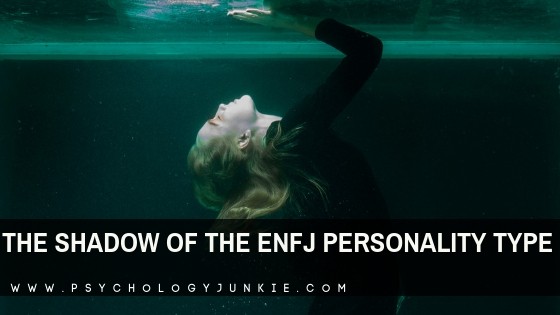
Does this mean that the ENFJ never uses the other four mental processes? Are they incapable of noticing inner-body sensations (Si) or extrapolating possibilities from the outside world (Ne)? Absolutely not! Today we’re going to take a look at how these four non-preferred functions can show up an in an ENFJ.
The ENFJ Shadow Functions:
Opposing Role: Introverted Feeling (Fi)
Critical Parent/Senex: Extraverted Intuition (Ne)
Trickster: Introverted Sensing (Si)
Demon: Extraverted Thinking (Te)
All these titles sound rather ominous and unpleasant. Does this mean that shadow functions are always used in a negative way? No. They can be used in both positive and negative ways, but they tend to be more unconscious than our four main functions and weaknesses in these areas are more easily projected onto other types.
Not sure what your personality type is? Take our new personality questionnaire!
A Little Background
The 8-function type model described here comes from the work of John Beebe and Mark Hunziker. Dr. John Beebe, M.D., is a Jungian analyst, editor of the San Francisco Jung Library Journal, co-editor of the Journal of Analytical Psychology, and an expert on Jung’s psychological types. Beebe spent a great deal of time studying the functions “left out” of MBTI® theory. While Myers-and Briggs focused completely on the dominant, auxiliary, tertiary, and inferior functions, he was sure that Jung had more to say about the nature of the four non-preferred functions and how they show up in our lives. Mark Hunziker, a Consultant to the Association for Psychological Type, wrote comprehensively about the shadow functions in his book, Depth Typology.
This article contains affiliate links. I only recommend products I truly believe in.
A Brief Look at the ENFJs Four Primary Functions:
Dominant/Hero Function: Extraverted Feeling (Fe)
This function is primarily focused on making decisions that will best benefit others. ENFJs innately grasp what people want, need, or feel, and they organize their environment to create a particular mood. They enjoy forming intimate, empathic connections with other people and are usually quick to give praise and make people feel comfortable. They recognize shared values and want to create an environment where people can do their best. Healthy Fe is used as a channel for creating harmony, unity, or propelling people towards a common goal. When Fe is used in a negative way it can over-value the needs of the group to the detriment of the “self” or individuals.
Auxiliary/Mother/Father Function: Introverted Intuition (Ni)
ENFJs use this function to gain insight into how things will play out in the future. They use this information to achieve goals or strategize. They often get a sense that something is or isn’t going to happen and sometimes this sense can be hard to put into words. Ni causes ENFJs to focus more on the future than the present, and they always seem to be looking for a potential, a path, or a possibility that could happen someday. ENFJs use Ni as a way of protecting and nurturing others. They enjoy showing other people the potential that they carry within them and guiding them towards future goals or warning them of unforeseen implications.
Tertiary/Eternal Child Function: Extraverted Sensing (Se)
ENFJs experience Se as a way to stay in touch with what’s physically going on around them. They can easily grasp the immediate context of what’s happening and they enjoy physical experiences and recreation. At times using Se can feel uncomfortable for them, it can make them feel distracted or impulsive. At other times it can help them to relax mental tension, keep their conversation relevant to what’s happening in the moment, and stay alert to details in their environment. According to Beebe, Se has a childlike quality for ENFJs. They use it to play and be creative but they can also be vulnerable here. Insults to their Se (for example, missing something painfully obvious and having someone point it out) can feel mortifying to ENFJs.
Inferior/Anima/Animus Function: Introverted Thinking (Ti)
The inferior function is also called the “aspiring” function in shadow theory. We feel like it should be an easy function to use, we sense that it’s part of us, but it continually trips us up. For ENFJs, inferior introverted thinking shows up when they struggle to narrow down a lot of data into one truth. They enjoy accumulating data, learning and discussing varied academic subjects. But when asked to use all this data in an impersonal, critical way it can be difficult for them. They can feel torn between too many options, or insecure about their understanding. They can fluctuate between being extremely logically consistent and then losing track of logical consistency when they are trying to make decisions that involve people. They can also become critical of other people who lack logical consistency. During times of stress or illness, ENFJs can become uncharacteristically nitpicky and cynical, pointing out other people’s flaws in logic and obsessing over logical consistency within themselves. They can also start to blame themselves for tiny errors and mistakes.
ENFJs appreciate Ti and look up to people who use it well. They may find themselves especially attracted to those who have Ti in the ego position, like IxTPs or ExTPs. Because this is an area they admire and aspire to they find it especially impressive when they are around people who can wield it with strength.
The ENFJ Shadow Functions
Opposing Personality: Introverted Feeling (Fi)
Fi is the antithesis to the ENFJ’s dominant function, Extraverted Feeling (Fe). Fe focuses on outward values and needs. “What’s important for the group? What is best for everyone? How can I get people’s personal needs met?” These are the questions that fill an ENFJ mind. Fi asks, “What’s important for me? What matters to me? What do my personal instincts and morals tell me?” Fe is concerned with collective harmony, morale, organizing the environment so that the goals of the group are achieved. Fi is individualistic, subjective, and concerned with prioritizing personal goals and values.
ENFJs experience Fi as a passive-aggressive critic to their Fe. It’s the inner voice that says, “Okay…yeah, go ahead and ignore what you wanted. I guess you don’t matter. Do what everyone else wants just like you always do.” When ENFJs experience this kind of voice (obviously the words can be different than these), they may even project those feelings onto other people, “You don’t care what I want. I guess I’ll just keep doing this stuff for you like I always do.” When a person gets an oppositional tone or starts projecting oppositional tendencies onto others, they are often doing it through their fifth function – in the case of the ENFJ, through Introverted Feeling.
Oppositional Fi isn’t always bad, however. Once ENFJs realize that they are the ones making the decisions that are contradicting their own Fi they start to realize that they can own up to their decisions instead of being passive-aggressive or angry at themselves or others. This is when growth happens and ENFJs start to place a higher priority on their own individual, subjective needs and desires and their relationships become more thriving and less one-sided.
Critical Parent /“Witch”: Extraverted Intuition (Ne)
When ENFJs feel self-critical, limiting, or become critical and limiting to others, it is often triggered by the 6th function, Extraverted Intuition (Ne). They can see Ne as a bother or a hindrance when it gets in the way of their vision or plan. For example, if an ENFJ has a very clear idea about how something should play out in the future (via their auxiliary Ni function), and Ne starts presenting lots of alternate meanings and possibilities, ENFJs can become overwhelmed and irritated. They may shut down Ne, seeing it as “other” and irritating. They may even shut down people who are using Ne to present other connections or alternatives. They may feel something like, “You’re missing the point! Stop bringing up all these crazy, ridiculous ideas that have nothing to do with what we’re talking about!” They can feel disoriented or overwhelmed by the presence of too many possibilities. This, in turn, causes them to become more self-critical and limiting as they struggle to find their vision or clarity.
When ENFJs start to realize that Ne is part of who they are and appreciate the wisdom it can provide they can start to grow. When they stop projecting “critical” Ne onto others and dismissing the connections and alternatives as meaningless, then they can expand their understanding of the world around them.
Trickster: Introverted Sensing (Si)
The trickster is something that creates disorder in order to open up new options for the ENFJ. It’s the “bad child” of the shadow functions, creating chaos and getting people trapped in double-binds. Its focus is on protecting the ego through trickery and deception. When ENFJs are operating from a Trickster position, they may not accept what they’re doing as really coming from them. This archetype can be activated when the Critical Parent function goes too far and creates a feeling of hyper-responsibility or over-imposed limits. It can also be activated when the “eternal child” (Extraverted Sensing for the ENFJ) feels attacked. This function can be turned inwards towards the self, or projected outwards towards others.
The function that fills the place of the trickster for ENFJs is called Introverted Sensing or “Si for short. Si looks for comfort, stability, physical well-being, and a sense of continuity. Si compares and contrasts the present to the past, noticing different details and changes. Si-users tend to store a lot of facts related to their past personal experiences. ENFJs may dismiss Si as “silly” or “pointless” if they aren’t careful. ENFJs tend to fixate on a vision or goal rather than prioritize individual health-related needs. They can be blind to things like hunger, thirst, and fatigue and overdo it trying to keep up with their vision. They can also hurl insults at themselves that include impressions from the past or past failures. They may feel that people who are using Si are trying to trap them by reminding them of things that aren’t important to them (consistency, health, internal well-being, past experiences). They can then project trickster Si onto them, saying or feeling things like, “Here’s a storehouse of facts that make you look incompetent or ridiculous and nullify what you’re trying to say.”
Si isn’t always a negative thing for ENFJs though. Once they accept Si they can start to notice when they’re making projections or trapping themselves or others. They can realize the importance of internal health, consistency, and learning from past experiences.
The Demon: Extraverted Thinking (Te)
This is the most suppressed area of the consciousness for the ENFJ. Some typologists call it the “Internal Saboteur”. According to shadow function theory, this is the archetype that carries emotions associated with evil, and there’s a sense that it could potentially destroy the ego. For ENFJs this archetype is filled by the Extraverted Thinking function. Extraverted Thinking is focused on creating logical order in the outside world. It focuses on objective facts and empirical knowledge that can be used to reach a goal. It’s impersonal and focused on creating efficiency and effectiveness so that an objective can be met. When it comes to people, ENFJs are much more concerned with meeting needs or maintain harmony (Fe) rather than creating logical, structural efficiency (Te). They can overlook procedures in an effort to meet the needs of the people around them. Te can be seen as a “necessary evil”, something ENFJs don’t particularly like using, but something that has to be used so that Fe objectives can be met. People who prioritize Te can appear overbearing, domineering, and/or cold to ENFJs if they don’t realize that ExTJs often use Te-objectives to accomplish Fi-related goals.
ENFJs can also experience Te as a terrible/overwhelming voice in their head. When they are surrounded by disorder and ineffective systems they can become extremely irritable and feel that everything is “wrong” or something terrible is going to happen. They can hurriedly clean up, make plans, and create hasty procedures in an effort to destroy the growing insecurity or fear they feel by the lack of structure in their lives.
Once ENFJs realize that Te is part of their own consciousness and that it isn’t something “bad” then they can start to grow. They can organize their world more efficiently without feeling a sense of panic about it.
Summing it Up:
The way that each individual experiences their 8 cognitive functions are unique. Many people disagree about how the four non-preferred functions are experienced. Some believe that they can become accepted into the ego based on life experience (for example, if you’re an ENFJ with an ISTJ parent you might integrate Si more readily). Others are fonder of the socionics framework for the functions. Your experience is unique and can’t be detailed by anyone other than you!
The shadow functions can be experienced in a negative or positive way, so it’s important to remember that they aren’t always bad. It’s also important to be aware of them when we start to project things onto others (when we start seeing people as oppositional, critical, sly, deceptive, or evil). Understanding the shadow functions can help us to have better relationships with ourselves and with others.
What Are Your Thoughts?
Did you enjoy this article? Do you have any insights or experiences to add? Let us know in the comments!
Find out more about your personality type in our eBook, Discovering You: Unlocking the Power of Personality Type.
Subscribe to Our Newsletter

Want to discover more about personality type? Get the inside scoop with Susan Storm on all things typological, along with special subscriber freebies, and discounts on new eBooks and courses! Join our newsletter today!




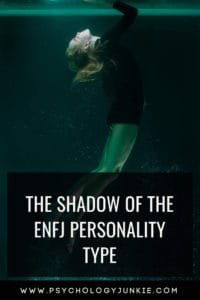

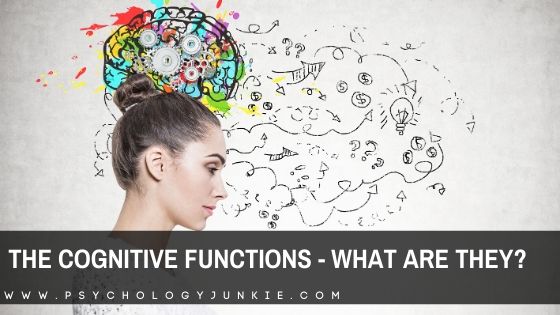


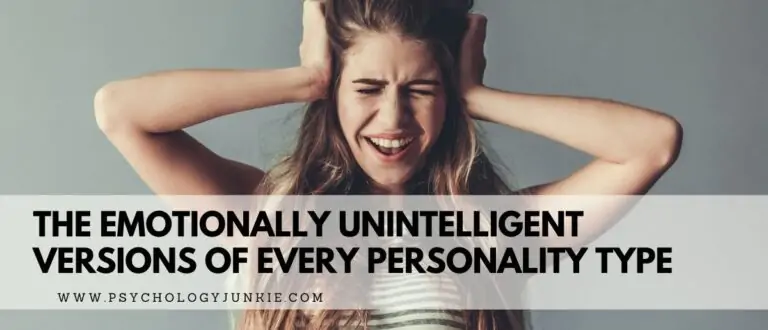
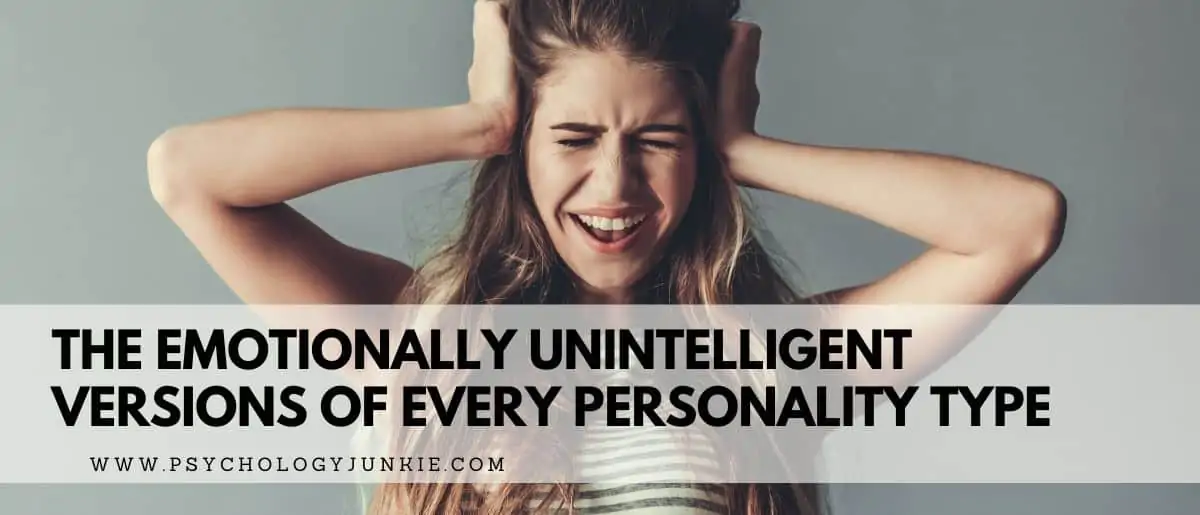
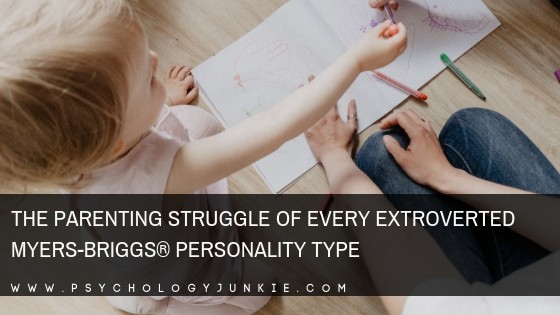


Good article, I think this will help a lot of people who may be feeling that they are acting different from their usual selves and feeling conflicted whole doing so. I hope that articles like this will also be made to other personality types.
Hello I’m an INFJ guy who loves reading your posts…
anyway please post other complete 15 personality types’ shadow fuction like this
I’d really want to know the rest..
keep up the good work 🙂
Working on it! Thank you!! Glad you’re enjoying the articles 🙂
ENFJ here. This article is absolutely a game changer, my ENFP husband and I are a little obsessed. Cannot WAIT to read ALL of the types shadow function descriptions, this was such a healing article to read and process with my husband. I have been interested in MBTI for a few years but this is the very first time I even heard about each type having 8 functions instead of 4. How can it be that no one talks about this?! The whole concept makes so much more sense this way. WOW. Your work is amazing, don’t stop!!!
I am an ENFJ and I learned so much about myself through reading this! The Trickster and The Demon are particularly fascinating. I believe I’ve had run-ins with those lovelies many times over the years. I was VERY resistant to them at first. They certainly brought extremely tough challenges with them, but over time their appearances were welcomed rather than rejected (in a good way). Now I try to let their voices be heard as much as possible, as they present valuable insights I wouldn’t have thought of otherwise. Thanks, Susan for taking the time to give me a detailed but concise summary of your studies on shadow functions. There really IS so much more to a type than 4 letters, and it really shows how everyone’s seemingly “bad” behavior is for a reason. Can’t wait to read the other Shadow articles! PS, my sister and I have read SOOO many of your posts and love them! They’ve been very helpful for studying MBTI. 😀
I’m an ENFJ and my mom and brother are both INFJs, which I relate a lot to as well. This article is spot on, making me even more aware of the why’s and how’s of past mistakes, haha. So thank you!!
Hi! I’m an ENFJ and will graduate this May. All through out high school, I always asked myself what my personality was.
I often criticized myself because I would be this extremely outgoing person this day, then I would completely shut my self off to other people.
I also struggled with critiquing myself when it comes to making decisions and would often compare myself to fictional characters that would rely on logic than emotions. I’m trying to learn to accept myself as I’m gonna enter college and learning about the shadow functions encourages me to better myself in a healthy way.
Reading this made me felt understood. Thank you.
The Shadow of the ENFJ Personality Type – Psychology Junkie
This post is really insightful and I learned a lot about the ENFJ personality type.
The Shadow of the ENFJ Personality Type – Psychology Junkie
This post is really insightful and I learned a lot about the ENFJ personality type.